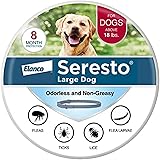Brushing your dog’s teeth regularly is an essential aspect of their overall health care routine that often goes overlooked. Just like humans, dogs can suffer from various dental problems, including gum disease, tartar buildup, and even tooth loss, which can lead to more severe health issues if left unattended. Integrating dental hygiene into your dog’s daily care can prevent these problems and contribute to their long-term health and well-being.
Why Regular Brushing is Important
Dental health in dogs is more crucial than one might think. Poor dental hygiene can lead to periodontal disease, which occurs in four stages, ranging from mild tartar buildup to severe infection that can affect the heart, liver, and kidneys. Regular brushing helps remove plaque, a sticky deposit on the teeth where bacteria proliferate, leading to tartar formation and gum disease. By maintaining clean teeth, you not only prevent bad breath but also safeguard your dog from potential organ damage linked to dental diseases.
Getting Started with Dental Care
Introducing your dog to teeth brushing can be a gradual process. Start by selecting a dog-specific toothbrush with soft bristles and dog-friendly toothpaste available in flavors appealing to canines, like poultry or peanut butter. Human toothpaste is not suitable for dogs as it contains ingredients that can be harmful if swallowed.
Begin with short sessions, allowing your dog to get used to the sensation of the brush and taste of the toothpaste. Gradually increase the duration as they become more comfortable. Aim to brush your dog’s teeth daily, but if that’s not feasible, strive for a minimum of three times a week to effectively combat plaque and prevent dental diseases.
The Benefits of Consistent Dental Care
Regular dental care can significantly impact your dog’s quality of life. It not only prevents painful dental issues but also contributes to their overall health. A dog with healthy teeth can eat comfortably, play without discomfort, and is less likely to suffer from the secondary effects of poor dental hygiene. Additionally, routine dental care can save you money in the long run by avoiding costly veterinary treatments for dental diseases.
Incorporating regular teeth brushing into your dog’s care routine is a small effort that can lead to significant benefits for their health and happiness. With patience and consistency, you can ensure your furry friend maintains a healthy, vibrant smile for years to come.

























